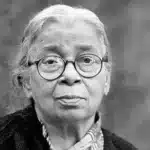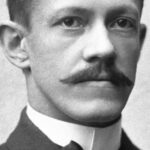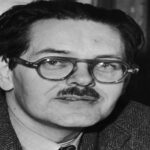Henri Moissan (28 September 1852 – 20 February 1907) was a French chemist and pharmacist who won the 1906 Nobel Prize in Chemistry. He is best known for his work in isolating the element fluorine and for his development of the electric arc furnace, which is used to produce high-temperature reactions.
Life and Career
Henri Moissan was born on 28 September 1852 in Paris, France. Moissan studied at the School of Pharmacy in Paris and earned his Ph.D. in 1880. After working as an assistant in various chemical laboratories, he was appointed professor of inorganic chemistry at the School of Pharmacy in Paris in 1886. He discovered in 1885 that when potassium difluoride is dissolved in hydrogen fluoride, the mixture stays liquid. He also found that the solution could be electrolyzed at sub-zero temperatures.
In the late 19th century, Moissan became interested in the properties of fluorine, which was known to be an extremely reactive element that had never been isolated in pure form. Moissan developed a method for isolating fluorine by electrolyzing a mixture of potassium fluoride and hydrofluoric acid. He was the first person to successfully isolate pure fluorine, which he did in 1886.
Moissan also made important contributions to the study of minerals, and he was the first to discover naturally occurring samples of the mineral moissanite, which is a form of silicon carbide. Moissan was also a prolific writer with more than a hundred publications. His most significant works include The Electric-Arc Furnace published in 1897, Fluorine and its Compounds published in 1900, and Treatise on Inorganic Chemistry published in five volumes from 1904 to 1906. He died on 20 February 1907 in Paris, France.
Award and Legacy
He received the 1906 Nobel Prize for Chemistry for the isolation of the element fluorine and the development of the Moissan electric furnace. He was also awarded the Davy Medal by the Royal Society of London in 1896, Prix Lacaze in 1897, and Elliot Cresson Medal by the Franklin Institute in 1898.












